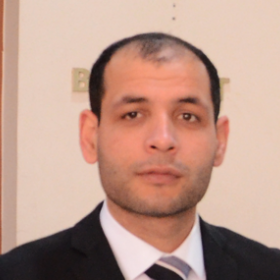
Reconnecting Afghanistan's Infrastructure
EWI's Istanbul conference, the first in a series, seeks to chart new measures to strengthen the Afghan economy.
About 40 participants from around the globe, including Afghanistan, Pakistan, India, the United Arab Emirates, Turkey, Uzbekistan, Kyrgyzstan, China, the United States and Europe, attended the EastWest Institute’s Istanbul conference, “Afghanistan Reconnected,” in Istanbul on April 10-11. Sponsored by the UAE, Germany and Turkey, this is the first of five conferences over the next two years focusing on improving the infrastructure within Afghanistan. The goal is to see how the country can best link up with its neighbors to fully develop its potential as an economic land bridge in Asia.
“Achievements on the security front will be fleeting unless they are underpinned by sustainable economic development,” Ambassador Fatih Ceylan of the Turkish Ministry of Foreign Affairs warned participants at the opening of the conference. Many reiterated the point that the market won’t wait for those in power to make decisions necessary for economic development. “Afghanistan Reconnected” comes at a critical time as the 2014 troop withdrawal approaches and Afghanistan begins to transit from a security economy to a more sustainable peace economy with sufficient growth and revenue.
The business communities of the region voiced their interest in unimpeded trade and more business opportunities, discussing the challenges in developing the hard and soft infrastructure required to enhance Afghanistan’s connectivity. Attendees agreed that Afghanistan’s economic potential will only be optimized when it becomes a transit route for trade and continental transport connecting people and markets in East and South Asia, Central Asia, Europe and the Middle East.
“We need to develop a cooperative framework through which we are able to bind the region in a web of trade, energy and transport linkages,” Ambika Sharma, deputy secretary general and head of the International Division at the Federation of Indian Chambers of Commerce and Industry told the participants. Those linkages, she added, “will not only act as a major confidence building measure, but will also contribute to greater economic synergies in the region and spur economic growth in Afghanistan and beyond.”
Another key issue at the conference was the relationship between Afghanistan and Pakistan and the need to enhance regular trade in line with the Afghanistan Pakistan Trade and Transit Agreement (APTTA). Attendees discussed the potential opportunities of the Southern Corridor from India to the Middle East and Europe. Former U.S. Ambassador to Afghanistan Robert Finn of Princeton University analyzed the relationship between Afghanistan and countries of Central Asia, referring to the economic benefits of using the shorter Southern Corridor for container shipment.
Dr. S. Frederick Starr, chairman of the Central Asia-Caucasus Institute at Johns Hopkins University and a leading expert focused discussion on impediments to trade as well as easy gains from prompt improvements. Several participants from Pakistan and Afghanistan recognized the existing trust-deficit in the region as a major obstacle to developing its full potential. Najlla Habibyar, head of Afghanistan’s Export Promotion Agency, also emphasized the potential for her country to move from being an importer to an exporter of energy with the right infrastructure in place.
Despite the enormous hurdles, participants believed that there are tremendous regional possibilities.
“Only regional cooperation can fully unlock the immense potential of Afghanistan and its neighbors," Jan Kubis, UN Special Representative and Head of the UN Assistance Mission in Afghanistan (UNAMA) pointed out. “Among the multitude of platforms it is the recently conceived Afghan-led and regionally owned Istanbul/Heart of Asia process that could be used both for mobilizing political will for cooperation and promoting a culture of working together in topical areas of common interest.”
The conference agreed on a number of recommendations to aid the development of the infrastructure network within Afghanistan and beyond in the short, medium and long term. Both the Afghan government representatives and the Afghan parliamentarians vowed to take swift action and expressed the commitment to follow up on these recommendations. Among them: increased efforts to fully implement APTTA as well as its gradual extension to India; the removal impediments to the fast transfer of goods between Kandahar and the Pakistani port at Gwadar; and the strengthening of the Afghan’s government’s ability to maintain its roads and develop and extend its rail network.

